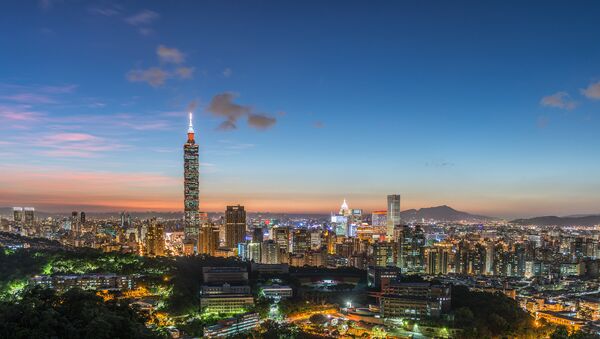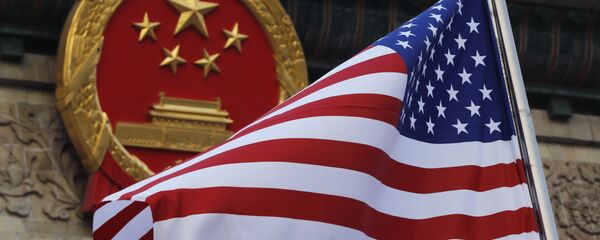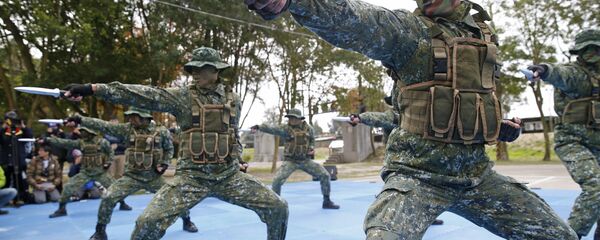At the same time, the US administration is exerting pressure on American Airlines and Delta, urging them not to obey China's demands to remove the mention of Taiwan as an independent state from their websites. But what do Trump's inconsistent actions say? Does this mean that the White House hasn't completely abandoned the the Taiwan issue, in order to put pressure on Beijing? Sputnik discussed this issue with Russian and Chinese experts.
According to the deputy director of the Institute of Asian and African Studies, Andrey Karneev, the decision not to send a high-ranking official to Taipei for the opening ceremony of the AIT is more situational rather than representative of a White House strategy change.
Most likely, the Trump administration is striving at this fragile moment, when there is uncertainty about the outcome of the meeting between Trump and Kim Jong-un, to enlist China's support on the important North Korean issue. In this situation a scandal is completely unnecessary, and the visit to Taiwan by Presidential Adviser on National Security John Bolton, which has been reported on since April by various sources, has now, apparently, been postponed.
Why this is happening is also understandable; the current administration is trying to maintain its leverage on Beijing, and the confidential nature of contacts with the top management of airlines is aimed at concealing the role of the White House. The fact that such demands are possible, we know from the history of Russian sanctions. There were several leaks in the press, indicating that US officials were ultimately demanding that foreign companies comply with the sanctions. Why not demand the same tough stance now against China, and this time from American companies?
Trumps's Taiwan Travel Act, which encourages reciprocal visits by US and Taiwanese officials at all levels, is a step in the same direction. The approval of the law, which China strongly objects to, means that Washington is going to play the so-called 'Taiwan card' to exert pressure on Beijing, Andrey Karneev believes.
On the other hand, competition between such major powers as China and the US is moving to a deeper level. The US administration has not abandoned the 'Taiwan card', and continues to look for, using various tricks, the 'red line' that cannot be crossed, otherwise a response from China will follow; it keeps playing sort of a game with Beijing."
Chen Xiaoxiao also believes that Washington is only using Taiwan in its political games: “I want to emphasize that, as analysis shows, the US uses Taiwan only as a pawn in the game, and is not really friendly towards Taiwan. Meanwhile, mainland China, due to the ongoing changes in the international situation, cannot allow the US to be a constant troublemaker in the Taiwan Strait,” he concluded.
The views and opinions expressed in this article are those of the speakers and do not necessarily reflect the position of Sputnik.



